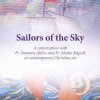Tesich was born on September 29th, 1942 as Stojan Tešić in Uzice, Yugoslavia (now Republic of Serbia) and emigrated to the USA with his family when he was 14 years old. They settled in East Chicago, Indiana, and Tesich later graduated from Indiana University in 1965, where he was a member of Phi Kappa Psi Fraternity.. He did graduate work at Columbia University where he began to write plays. Breaking Away (1979) won Tesich an Oscar and a Golden Globe nomination. When his film career ended, Tesich continued to write plays.
After achieving success writing for both stage and screen he died on July 1st, 1996 following a heart attack at the age of 53 in Sydney, Nova Scotia, Canada.
Screenplays:
- Breaking Away (1979)
- Eyewitness (1981)
- Four Friends (1981)
- The World According to Garp (1982)
- American Flyers (1985)
- Eleni (19S5)
Plays:
- Nourish The Beast
- The Carpenters
- Division Street
- Square One
- Out on the Open Road
- Arts and Leisure
- The Speed OfDarkness
Novels:
- Summer Crossing (1982)
- Karoo (1996)





